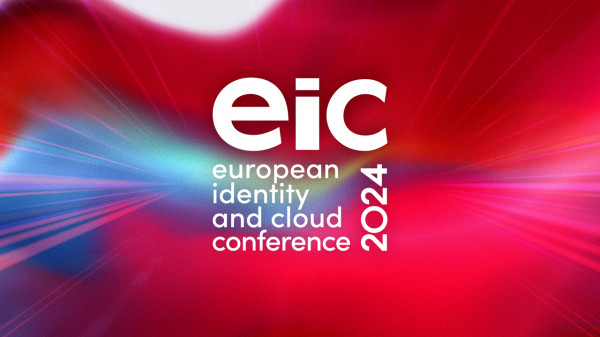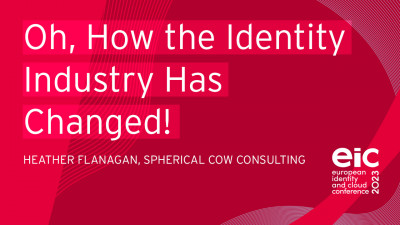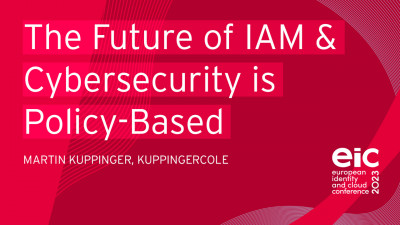Trust has somehow become a marketing buzzword recently. There is a lot of talks about “redefining trust”, “trust technologies” or even “trustless models” (the latter is usually applied to Blockchain, of course). To me, this has always sounded… weird.
After all, trust is the foundation of the very society we live in, the key notion underlying the “social contract” that allows individuals to coexist in a mutually beneficial way. For businesses, trust has always been a resulting combination of two crucial driving forces – reputation and regulation. Gaining a trustworthy reputation takes time but ruining it can be instantaneous – and it is usually in a businesses’ best interest not to cheat their customers or at least not to get caught (and that’s exactly where regulation comes into play!). Through the lengthy process of trial and error, we have more or less figured out already how to maintain trust in traditional “tangible” businesses. And then the Digital Transformation happened.
Unfortunately, the dawn of the digital era has not only enabled many exciting new business models but also completely shattered the existing checks and balances. On one hand, the growing complexity of IT infrastructures and the resulting skills shortage made sensitive digital data much more vulnerable to cyberattacks and breaches. On the other hand, unburdened by regulations and free from public scrutiny, many companies have decided that the lucrative business of hoarding and reselling personal information is worth more than any moral obligation towards their customers. In a way, the digital transformation has brought back the Wild West mentality to modern businesses – completely with gangs of outlaws, bounty hunters, and snake oil peddlers…
All this has led to a substantial erosion of public trust – between another high-profile data breach and a political scandal about harvesting personal data people no longer know whom to trust. From banks and retailers to social media and tech companies – this “trust meltdown” isn’t just bad publicity, it leads to substantial brand damage and financial losses. The recent introduction of strict data protection regulations like GDPR with their massive fines for privacy violations is a sign that legislation is finally catching up, but will compliance alone fix the trust issue? What other methods and technologies can companies utilize to restore their reputations?
Well, the first and foremost measure is always transparency and open communications with customers. And this isn’t just limited to breach disclosure – on the contrary, the companies must demonstrate their willingness to improve data protection and educate customers about the hidden challenges of the “digital society”. Another obvious approach is simply minimizing personal data collection from customers and implementing proper consent management. Sure, this is already one of the primary stipulations of regulations like GDPR, but compliance isn’t even the primary benefit here: for many companies, the costs savings on data protection and reputation improvements alone will already outweigh the potential (and constantly dwindling) profits from collecting more PII than necessary.
Finally, we come to the notion of security and privacy “by design”. This term has also become a buzzword for security vendors eager to sell you another data protection or cybersecurity solution. Again, it’s important to stress that just purchasing a security product does not automatically make a business more secure and thus more trustworthy. However, incorporating certain security- and privacy-enhancing technologies into the very fabric of your business processes may, in fact, bring noticeable improvements, and not just to your company’s public reputation.
Perhaps, the most obvious example of such a technology is encryption. It’s ubiquitous, cheap to implement and gives you a warm feeling of safety, right? Yes, but making encryption truly inclusive and end-to-end, ensuring that it covers all environments from databases to cloud services, and, last but not least, that the keys are managed properly is not an easy challenge. However, to make data-centric security the foundation of your digital business, you would need to go deeper still. Without identity, modern security simply cannot fulfill its potential, so you’ll need to add dynamic centralized access control to the mix. And then security monitoring and intelligence with a pinch of AI. Thus, step by step, you’ll eventually reach the holy grail of the modern IT – Zero Trust (wait, weren’t we going to boost trust, not get rid of it? Alas, that’s the misleading nature of many popular buzzwords nowadays).
For software development companies, investing into security by design can look complicated at first, too. From source code testing to various application hardening techniques to API security – writing secure applications is hard, and modern technologies like containers and microservices make it even harder, don’t they? This cannot be farther from the truth, however: modern development methodologies like DevOps and DevSecOps are in fact focusing on reducing the strain on programmers with intelligent automation, unified architectures across hybrid environments, and better experience for users, who are learning to appreciate programs that do not break under high load or cyberattacks.
But it does not even have to be that complicated. Consider Consumer Identity and Access Management platforms, for example. Replacing a homegrown user management system with such a platform not only dramatically improves the experience for your current and potential customers – with built-in privacy and consent management features, it also gives users better control over their online identities, boosting their trust considerably. And in the end, you get to know your customers better while reducing your own investments into IT infrastructure and operations. It can’t really get better than this.
You see, trust, privacy, and security don’t have to be a liability and a financial burden. With an open mind and a solid strategy, even the harshest compliance regulations can be turned into new business enablers, cost-saving opportunities and powerful messages to the public. And we are always here to support you on this journey.












































